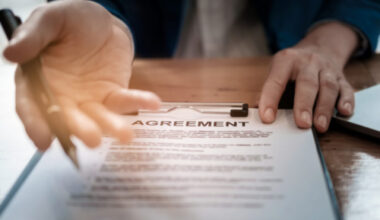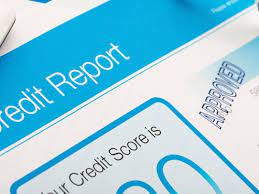Investing is a big step forward when you buy your first rental property. It’s one of the biggest things you can buy, and if you put in a little time and work, it can be a great way to make money while you sleep. But you should learn the basics before you become a real estate mogul and start building an empire. When you buy your first rental property, it’s important to know how to find a house, get a mortgage, and find good tenants. Let’s take a look at the steps you’ll need to consider before buying a rental property and the problems you might run into when buying your first investment property. Buying a rental property is a lot like buying a home for yourself, especially if you are buying it out of state, but there are some differences you’ll need to think about.
Is Rental Property the Right Choice?
In just a minute, we’ll talk about the basics of how to buy a rental property. First, you should think about whether or not buying a property to rent out is the right investment for you.
The Internal Revenue Service may consider rental income a “passive” activity, but real estate investments often require active participation and a willingness to take on some risk in exchange for a higher level of potential reward.
Even if a real estate investor hires a local property management company, he or she may still need to keep an eye on the property. For example, investors may be asked to approve certain improvements or repairs and to look over the income statement and net cash flow report every month and at the end of the year.
Even if an investor does a good job of screening tenants, they may end up with someone who pays the rent late or needs to be kicked out. Losing rental income and having to pay extra for eviction can quickly cut into potential profits and overall returns. It can also take a lot of time to keep track of an eviction.
Even though it comes with responsibilities, a good investment property can give you the perfect combination of rental income, long-term property value growth, and tax benefits from deducting operating and owner expenses and depreciation.
How to Buy Your First Rental Property in 5 Steps
After deciding that owning rental property is a good investment, there are five basic steps to take:
#1. Arrange to Finance
When you want to get a mortgage on a single-family rental property, the process is a little different from when you want to get a mortgage on your own home. Down payments are bigger, lender fees and interest rates are a little higher, and there are different requirements to meet:
Most down payments are between 20% and 25% of the price of the property, and some investors refinance their homes to get the cash they need for a down payment.
Experian says that a credit score of 720 or higher is needed for the best loan terms, but it is possible to buy an investment property with a lower credit score.
Copy of tax returns, bank statements, and proof of income are some of the documents a borrower needs to show (similar to applying for a loan on a primary residence).
Lenders may want up to six months’ worth of mortgage payments to be kept in a reserve account if monthly income is lower than expected or if monthly expenses are higher than expected.
When getting financing for a rental property, there may be more hoops to jump through, but the good news is that there are a lot of options. Fannie Mae and Freddie Mac back loans from traditional lenders like banks and credit unions. Other investors get financing for rental property from private lenders or by forming a joint venture.
#2. Understand Rental Property Returns
Return on investment (ROI) is a financial metric that real estate investors use to figure out how profitable an investment property might be. To figure out how much money the property is making back, an investor needs to know:
- Estimate the annual rental income, including rent from tenants and other income such as pet rent.
- Estimate your annual operating costs, such as repairs, property management fees, taxes, and insurance.
- Estimate annual cash flow by taking income minus expenses.
- Figure out the down payment and other up-front cash (such as needed repairs)
- Divide the annual cash flow by the total amount of cash invested to figure out the return on investment.
#3. Find a Rental Property
Some of the most important things to think about when choosing a place to rent and the best real estate markets are:
- More jobs and more people
- Share of households that are rented
- Rents going up and vacancies going down.
- Changes in home values over time may lead to long-term growth.
- Neighborhood rating, including the quality of the school district and the number of jobs in the area
- First-time buyers have less investment risk if they can buy a single-family rental property that is ready to rent or has a tenant already in place.
- Property tax rates can be very different from one city and state to the next, which can affect the return on investment.
There are many websites, like Zillow, Trulia, and Realtor.com, where you can look for homes for sale. But most of the listings are for people looking for a primary home.
#4. Hire a Property Manager (If Not Self-Managing)
It can take more time than it might seem to be a landlord. Some of the things that need to be done to manage a rental property well are finding and screening tenants, collecting rent, and taking care of repairs.
The Fair Housing Act, local and state landlord-tenant laws, periodic property inspections, regular rent comparisons, and getting the best prices from qualified vendors are all things owners need to do to keep operating costs under control and rental property returns growing. By going to the Roofstock Academy, which is a training program designed to help real estate investors succeed, new investors can learn how to be good investors and landlords.
People who don’t want to be landlords or who don’t have the time to do so often hire a local property manager. By hiring a property manager, an investor may be able to enjoy the benefits of owning a rental property without having to deal with all the problems that come with it. The best rental property managers take care of day-to-day tasks so that investors can focus on growing passive income streams by buying rental property in the best markets for the best returns.
#5. Track Income and Expenses
Even for experienced real estate investors, it can be hard to keep track of the income and costs of rental properties. Some common income and costs that affect the return on a rental home are:
- Rental income
- Deposit for security
- Other money (pet, storage, laundry, roommate, etc.)
- Fees for renting
- Cost of managing a property
- Fixing and taking care of
- Landscaping
- Pest control
- Utilities (sometimes found with small multifamily properties)
- Mortgage payments
- Insurance
- Taxes on property
- HOA fees
- Cost of depreciation
- Owner expenses (such as traveling to an out-of-state property)
Even though you could use post-it notes, cocktail napkins, or a series of spreadsheets to keep track of your income and expenses. Smart real estate investors usually choose software that is made for people who own rental properties. Stessa gives real estate investors a free, powerful tool for managing their properties’ finances online or through their phones. Stessa is made by investors in real estate for investors in real estate.
After making a free account, all you have to do is enter the address of the rental property. Link your business banking account to run reports, including the revenue statement, net cash flow, and capital expenses.
Buying a Rental Property With No Money Down
When flippers, home buyers, and investors are buying rental property with no money down, it means they don’t put much or any of their own money toward the upfront costs of the investment property. If real estate investors utilize less of their own money, they may obtain a better return.
Buying any kind of rental property, especially with money down will, of course, cost money. But if you know what you’re doing, you don’t have to take the money from your own savings. If you don’t have much saved, use your home’s equity or co-borrow to invest in real estate.
Benefits of Buying a Rental Property as an Investment
There are many reasons for buying a rental property as an investment. There are good and bad times when buying a rental property with no money down in real estate, but the good times usually outweigh the bad times.
#1. Good Cash Flow
When you invest in rental properties, you get a good cash flow because money keeps coming into your account each month. You’ll have more money in your bank account without having to go to work every day.
#2. Tax Benefits
If you own a rental property, there is a good chance that your state will give you tax breaks. People who own rental properties pay little or no taxes on them. You might not even have to pay taxes on the money you make from renting out your home. This also comes with deductions for things like mortgage interest, insurance, physical wear and tear, and property maintenance. Every day, the cost of living goes up, so these tax breaks can be helpful.
#3. Value Appreciation
The value of a piece of real estate goes up over time. This means that as the property’s price goes up over time, you will make more money and be able to pay off your mortgage faster. You can also choose to sell your property when the time is right for a fair price. Even though there are still ups and downs, buying a rental property as an investment has been going up for a very long time.
#4. You’re In Charge
When you buy a rental property, you take care of almost everything. You get to decide what kind of property you want, who you want to rent it to, and how you want to run the buying process rental property investment. Depending on where you are, you can come up with rental offices, homes, or short-term vacation stays.
Tips for Buying a Great Rental Property
Robert Kiyosaki, who started the Rich Dad Company, once said, “Investing in real estate, even on a small scale, remains a tried-and-true way to increase a person’s cash flow and wealth.”
Even though that might be true, not all homes are good investments. Here are some tips on buying a great rental property with no money down:
- To invest in real estate, you need to think about the long term.
- Learn about the ROI, cash flow, cap rate, and cash on cash return of investing in rental properties. You can learn how to analyze real estate deals with the help of this guide.
- Before you decide what and where to buy a rental property, you should carefully look at each real estate market.
Buying a Rental Property Out of State
Buying a rental property out of state has a number of pros. First of all, when buying rental property out of state, you spread out your rental portfolio. Owning property in several locations of the country protects you from natural disasters. Each state, county, and municipality has its own market-driven economy. If the market in one location drops, you have other residences in better places.
Another great thing about buying a rental property out of state is that you can choose the type of return you want and then pick a market that is most likely to give you that return. Looking for a property that brings in the most money each month? Would you rather have a higher expected return? Depending on your goals, you might determine where to invest in real estate outside of your home area.
Also, if you live in a very expensive market like San Francisco or New York City, it may not make sense for you to own rental properties in your area because the return on investment (ROI) would be too low or even non-existent. But by buying rental property out of state, you may be able to make a lot more money.
Conclusion
If you treat it like a business, a rental property can be a great investment. But before you spend your money, you’ll want to know (as much as possible) what you’re getting into. Even though getting a passive monthly income from real estate is appealing, keep in mind that it often takes a lot of work to keep that income coming in.
FAQs
Is it possible to own a rental property with a mortgage?
Renting doesn’t require cash. You can own a rental property while paying payments, provided you qualify for a mortgage and have at least 20% down.
Will I pay tax on the rental income I own?
Rental income is subject to federal taxation and must be included in your taxable income on your tax return in the same way as other sources of income.
Is it harder to get a mortgage for an investment property?
Investment property loans are harder and more expensive than owner-occupied loans. Many lenders demand stronger credit scores, better debt-to-income ratios, and proof you’ve kept the same employer for two years (W2s, paystubs, tax filings).






